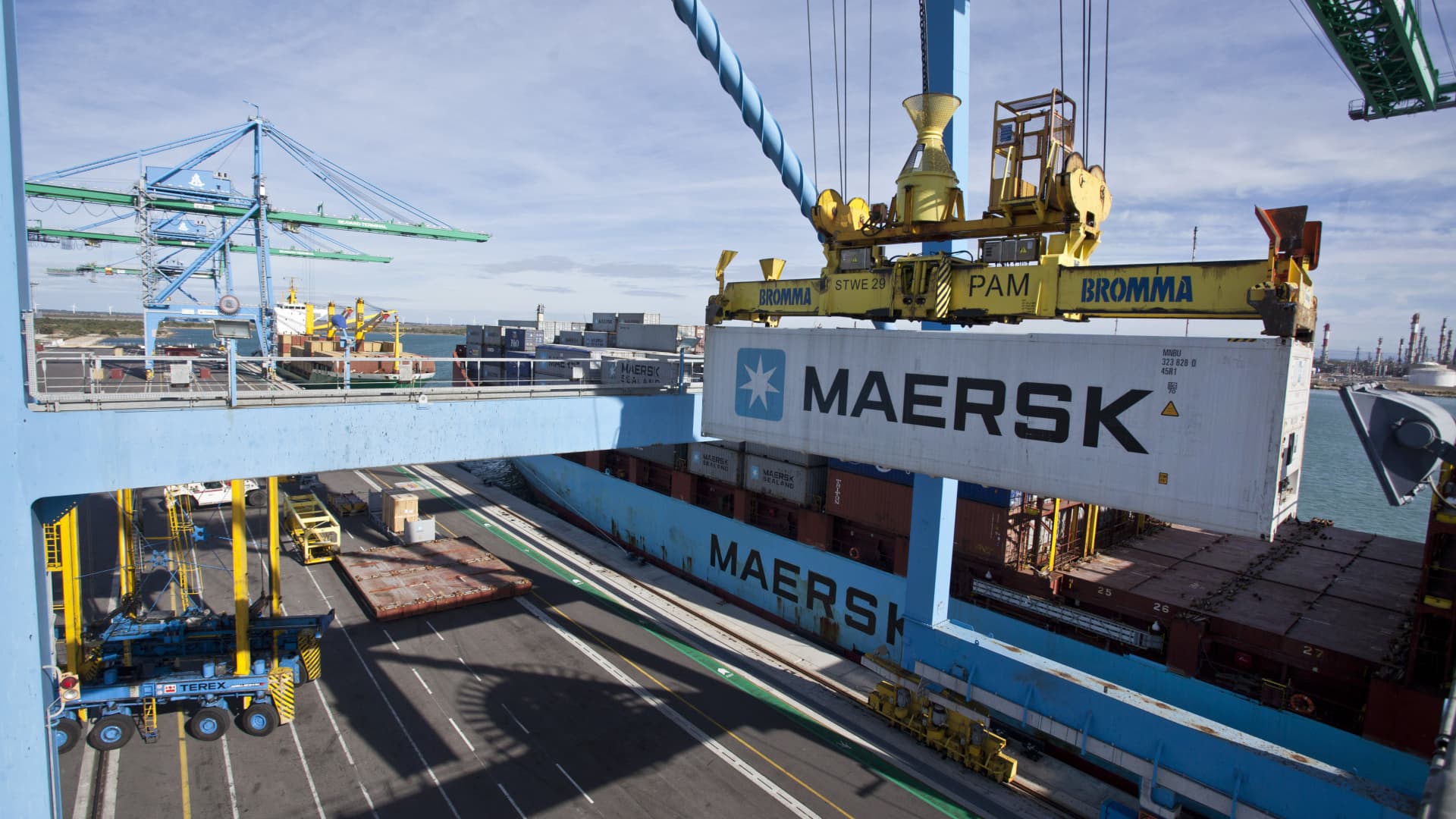Shipping giant Maersk beats expectations despite 72% profit plunge on falling container rates

A crane loads a shipping container branded A.P. Moller-Maersk onto a freight ship.
Balint Porneczi | Bloomberg | Getty Images
Danish shipping giant Maersk on Friday reported a sharp fall in second-quarter earnings on the back of plunging container rates, but still managed to beat market expectations and upgrade its full-year guidance.
The world’s second-largest shipping company, often seen as a bellwether for global trade, posted a second-quarter profit before interest, tax, depreciation and amortization (EBITDA) of $2.91 billion, well below the record $10.3 billion for the same quarter in 2022. Analysts had projected an EBITDA of $2.41 billion, according to Refinitiv data.
related investing news
The company has long warned of a steep decline in earnings after an “exceptional” 2022 as the sky-high ocean freight rates that powered it to record-breaking profits began to normalize rapidly.
Revenue sank by 40% year-on-year, from $21.65 billion in the second quarter of last year to $12.99 billion, as container rates continued to fall and volumes remained weak due to “continued destocking particularly in North America and Europe,” the company said in its report.
Maersk warned of a deeper pullback in global shipping container demand, and now expects volumes to fall by as much as 4% versus a previous worst case scenario of 2.5%.
“The Q2 result contributed to a strong first half of the year, where we responded to sharp changes in market conditions prompted by destocking and subdued growth environment following the pandemic fueled years,” CEO Vincent Clerc said in a statement.
“Our decisive actions on cost containment together with our contract portfolio cushioned some of the effects of this market normalisation. Cost focus will continue to play a central role in dealing with a subdued market outlook that we expect to continue until end year.”
Maersk also narrowed its profit forecast for the full year and now expects underlying EBITDA to come in between $9.5 billion and $11 billion, having previously estimated a range of between $8 billion and $11 billion.









